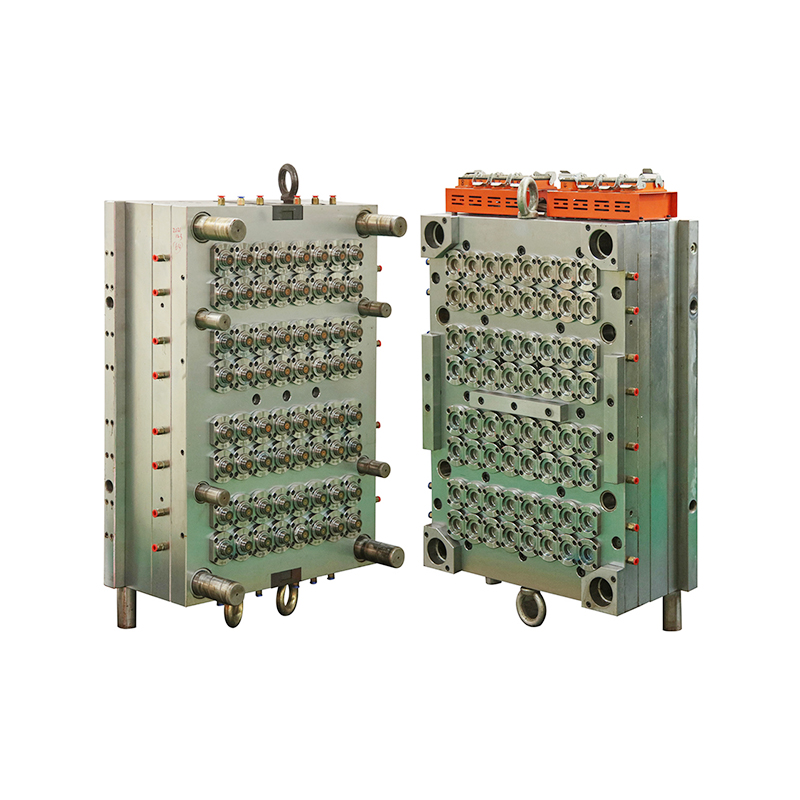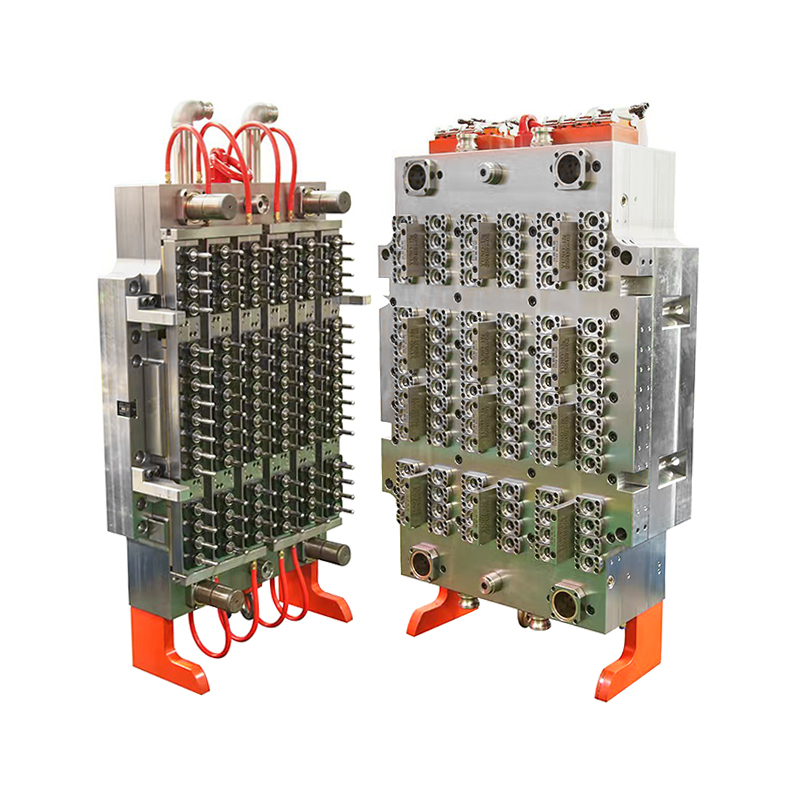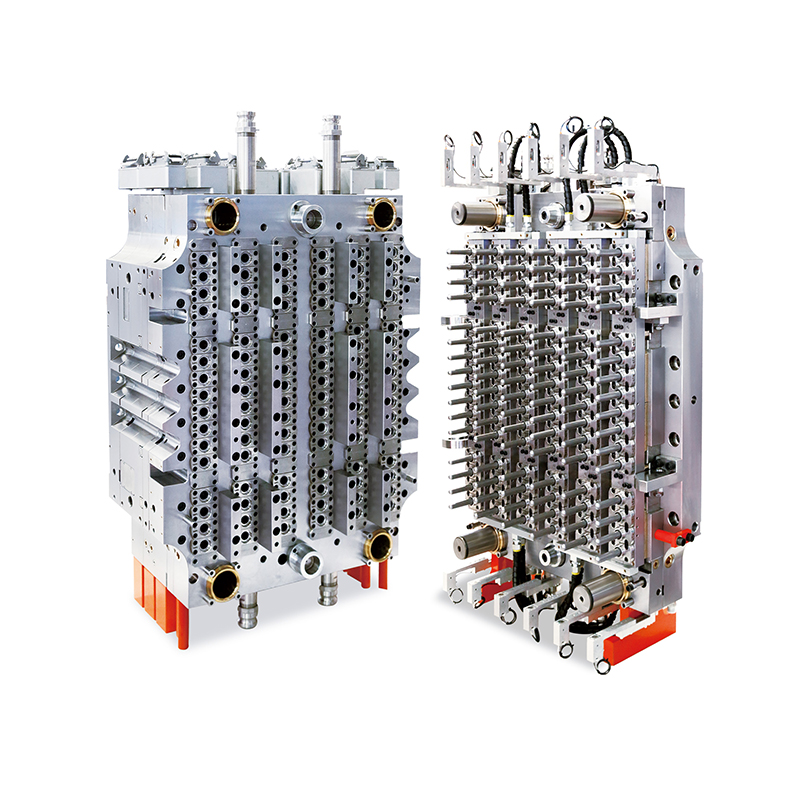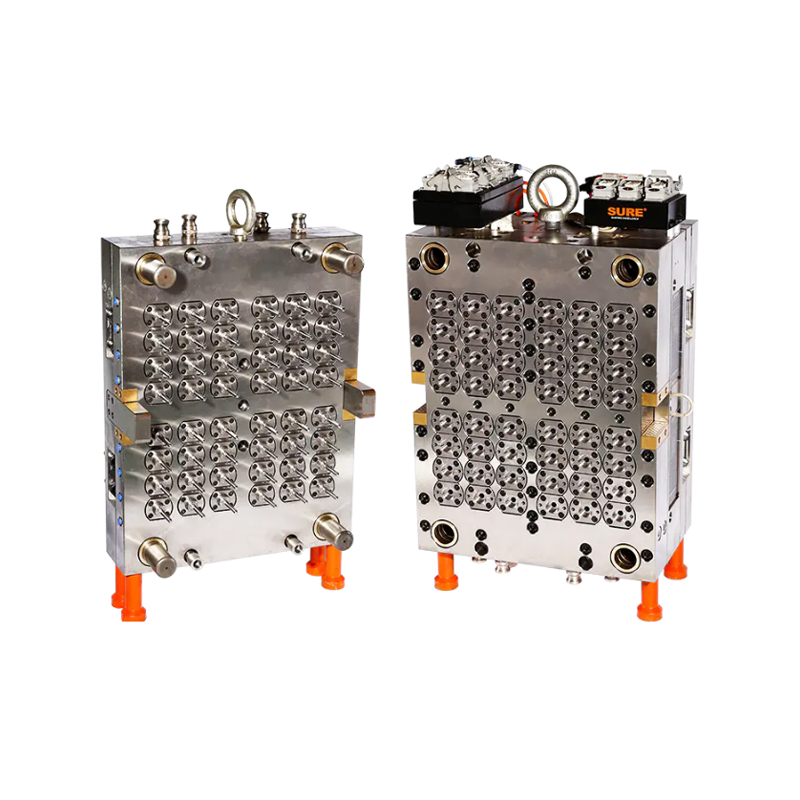No.148 Yongda Road, Jiangkou Street, Huangyan, Taizhou, Zhejiang, China.
In the competitive world of beverage packaging, cap production is a high-speed, high-precision game. Bottle caps—small as they may be—are essential components that safeguard product freshness, ensure leak-free transport, and provide tamper evidence for consumers. With billions of bottled water units sold globally each year, cap manufacturers are under pressure to produce large quantities quickly, without sacrificing quality or consistency.
To meet this challenge, more producers are turning to advanced tooling like the 64-Cavity Water Cap Mold—a solution that combines large-scale production capacity with uncompromising precision and operational durability.
Optimizing Output Without Compromising Quality
One of the primary advantages of the 64-cavity design is its ability to produce 64 caps in a single injection cycle. This significantly reduces the cycle time per cap, translating to greater throughput and cost-efficiency for high-demand customers.
While increased cavity count is key to high-volume production, the true value of the 64-cavity mold lies in its consistency across all mold cavities. Each cavity is engineered with precise tolerances to ensure that every cap—whether from cavity one or sixty-four—has the same dimensional accuracy. This is crucial for ensuring a secure seal on water bottles, particularly in automated filling and capping lines where even minor inconsistencies can lead to product rejection or downtime.
Durability for Demanding Production Environments
Cap molds are subjected to intense operational stress. With machines running 24/7 in many production plants, mold components must withstand frequent thermal cycling, high pressure, and abrasive wear from polymers. The 64-cavity water cap mold is built from hardened tool steels and corrosion-resistant alloys, materials known for their ability to retain shape and performance over millions of cycles.
Manufacturers benefit from longer maintenance intervals, reduced downtime, and minimized component wear, all of which contribute to a lower total cost of ownership over the mold’s lifespan.
Integrated Hot Runner System Boosts Efficiency
A key feature of this mold system is the integration of a hot runner technology—a game-changing addition that enhances material flow, improves fill consistency, and eliminates waste associated with traditional cold runners. With this system, the molten plastic is delivered directly into each cavity via thermally controlled channels, ensuring precise injection and faster cycle times.

Additionally, valve-gated hot runners allow for clean and accurate filling without stringing or drooling, reducing post-mold trimming needs and enhancing the surface finish of the caps. This is especially valuable in transparent or colored caps, where aesthetics play a role in consumer perception.
Smart Design Supports Easy Operation and Maintenance
The 64-cavity water cap mold is not only built for performance but also for ease of use and streamlined upkeep. Its modular design allows for quick replacement of cores, cavities, and inserts without dismantling the entire mold. This reduces repair time and simplifies routine maintenance.
User-centric features—such as self-centering guides, intuitive alignment systems, and integrated cooling diagnostics—ensure that the mold remains operator-friendly, even during long production runs. These design considerations help reduce human error, enhance production safety, and maintain consistent output quality.
Engineered Cooling Channels Accelerate Turnaround
Efficient temperature control is essential in any high-cavity mold to prevent warping, shrinkage, or uneven cooling. The 64-cavity mold comes equipped with precision-engineered cooling channels that optimize heat dissipation. Each cavity and core is cooled evenly, maintaining the shape and mechanical properties of the caps while enabling rapid cycle repetition.
Some advanced systems also allow for segmented cooling control, enabling temperature adjustments per zone—an added advantage when processing different resins or cap types.
Versatile Applications in Beverage and Beyond
While primarily used for bottled water caps, the mold can be adapted to produce caps for other low-viscosity liquids, such as flavored drinks, sports beverages, and even non-food products like household cleaning liquids. Customization options allow for different neck finishes, tamper bands, embossing, and color-coded applications, making this mold highly adaptable for evolving market needs.


 英语
英语 法语
法语
















